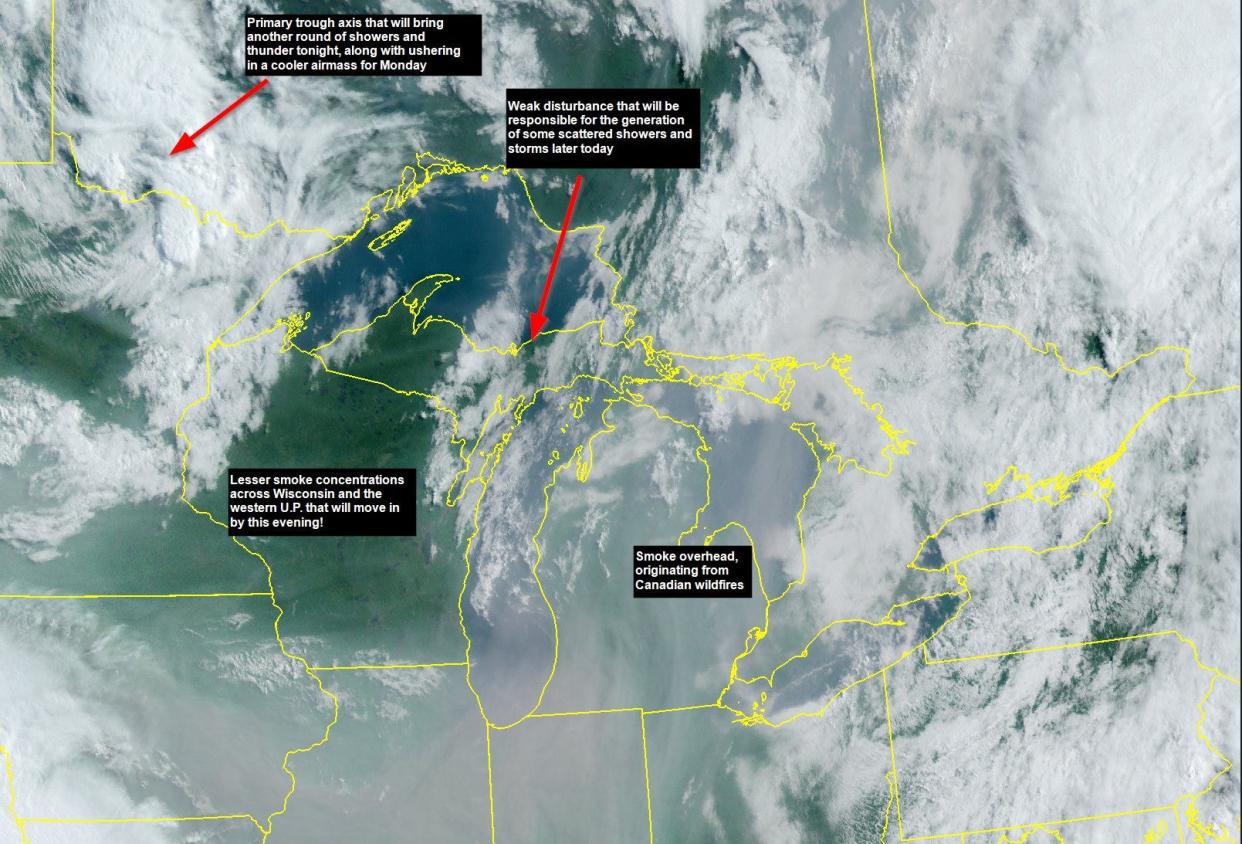Michigan is in for another round of Canadian wildfire smoke

LANSING — Smoke from wildfires in Canada is expected to blanket Michigan again Sunday, prompting officials to issue another air quality alert.
The Michigan Department of Environment, Great Lakes, and Energy deemed Sunday an “action day” for air quality because of smoke drifting into Michigan due to wildfires that have been raging in Canada for much of the summer.
The state issued several action days in June as well.
“Near surface smoke from wildfires in Canada is expected to come in over the area this morning,” the National Weather Service’s Grand Rapids office posted on Twitter. “It then looks to move out this evening, and come in again overnight. It will then move out (Monday) morning for the foreseeable future.”
Air quality alerts are issued to warn people with lung disease, heart disease and children and older adults' to limit prolonged or heavy exertion.
State officials also urge people to reduce or limit outdoor burning and to keep windows on their homes closed.
How the air rating system works
State meteorologists forecast pollutants including ground-level ozone and fine particulate and declare an “Action Day” when air quality levels are expected to reach or exceed various health levels.
Here are the levels the state tracks, using a numerical scale:
For perspective, at 10 a.m. Sunday, EGLE's air quality index website showed Grand Rapids with a 119 rating, which was unhealthy for sensitive groups. The air quality in Flint and the Eastern Upper Peninsula was rated at 18 and 45, respectively, or within the top rating of good. Lansing’s air quality was unavailable on the state’s website Sunday morning.
Good, with a rate of 0 to 50:
Moderate, with a rate of 51-100;
The MDEQ said the condition of Michigan’s air quality falls in the good and moderate categories most of the time;
Unhealthy for sensitive groups (101-150): Sensitive groups include kids; people with asthma or heart disease and people who work or exercise strenuously outdoors.
Unhealthy (151-200): When the air is deemed unhealthy for all residents, regarding less of any health conditions.
Very unhealthy (201-300): At this level, the state recommends people voluntarily reduce air emissions and reduce exertion when working or exercising outdoors.
Michigan residents can sign up for alerts at www.michigan.gov/air and select the EnviroFlash button at the bottom of the page and follow directions to sign up.
This article originally appeared on Lansing State Journal: Michigan is in for another round of Canadian wildfire smoke

